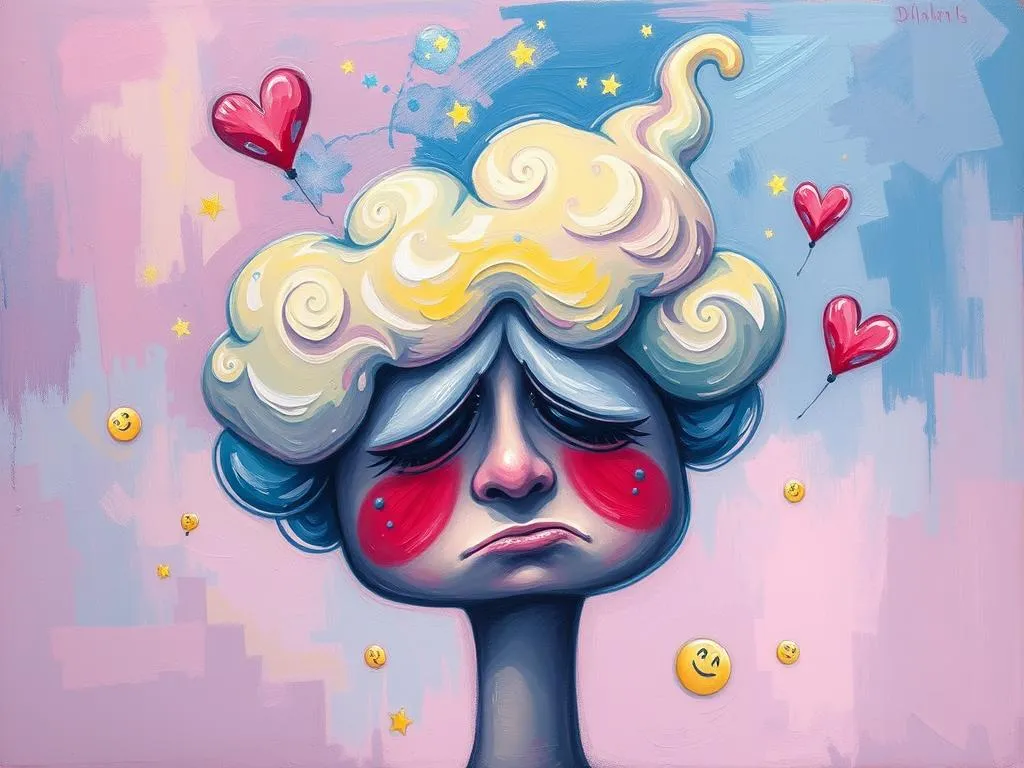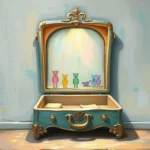
Introduction
Dreams serve as a fascinating window into our subconscious, often reflecting our innermost thoughts, emotions, and unresolved conflicts. Among the myriad of feelings that can arise during our nightly escapades, sadness and anger frequently surface. These emotions can be deeply intertwined, making their appearances in dreams particularly compelling. Understanding the symbols and scenarios associated with these feelings not only helps decode the messages our subconscious is trying to convey but also sheds light on our waking lives. In this exploration, we will delve into the rich symbolism and meanings behind dreams that evoke sadness and anger, the variations of these dreams, and how they connect to our real-life experiences.
Symbolism and Meaning
When we dream about feelings of sadness and anger, several common symbols may emerge, each carrying its own set of meanings. One prevalent symbol is water, which often represents emotions. Calm waters might indicate tranquility, while turbulent waters often symbolize emotional turmoil. If you find yourself surrounded by stormy seas in your dreams, it may reflect your inner chaos, representing feelings of sadness and unresolved anger that are bubbling beneath the surface.
Another significant symbol is darkness. Dreaming of dimly lit spaces or being engulfed in shadows can signify emotional struggles. Darkness often embodies the unknown, fear, and feelings of isolation. When we face sadness or anger in our dreams, the presence of darkness could indicate that these feelings are not just fleeting emotions but are deeply rooted in our psyche, perhaps linked to past experiences or traumas.
People in dreams can also serve as powerful symbols. An argument with a friend or family member may represent unresolved conflicts in waking life. If you dream of losing a loved one, this could signify feelings of grief, whether related to the person themselves or to a part of yourself that you feel is lost. The emotional weight of such dreams can linger long after waking, prompting reflections on relationships and emotional health.
Additionally, objects can hold significance. For instance, dreaming of broken items, such as shattered glass or a damaged heirloom, may symbolize a feeling of loss or disappointment. These symbols act as metaphors for your emotional state, urging you to confront feelings of sadness or anger rather than suppress them.
Different perspectives on these symbols can also yield varied interpretations. For example, while water often conveys emotions, it can also symbolize cleansing or renewal. Thus, dreaming of water flooding your space might represent a need for emotional release, suggesting that while you may feel sadness and anger now, there is potential for healing and rebirth if you face these feelings head-on.
Key Scenarios and Variations
The scenarios in which feelings of sadness and anger manifest in dreams can significantly alter their meanings. A common variation involves recurring dreams, where the same emotional themes persist over time. If you frequently dream of being angry at someone from your past, this may indicate unresolved issues that require your attention. The recurrence of these dreams signals that your subconscious is urging you to confront and address these lingering feelings.
Another variation is the confrontational dream, where you find yourself in a heated argument or in conflict with someone. This scenario can serve as a cathartic release, allowing you to express emotions that you may be suppressing in your waking life. The intensity of the argument could reflect how deeply you feel about the issue at hand. However, it could also point toward the need for reconciliation or a resolution that you have yet to achieve.
Isolation in dreams is another powerful scenario that might evoke sadness and anger. For instance, dreaming of being alone in a crowded room can symbolize feelings of alienation or loneliness. This scenario encourages self-reflection regarding how you perceive your relationships and emotional connections in waking life. Are you feeling disconnected from those around you? Are there unresolved tensions contributing to your feelings of isolation?
Conversely, dreams depicting betrayal can also evoke intense feelings of sadness and anger. If you dream of being betrayed by a close friend or partner, this could signify a fear of losing trust or a deep-seated fear of abandonment. These dreams may compel you to examine your current relationships and assess whether there are underlying issues that need to be addressed.
In contrast, dreams in which you overcome sadness or anger can offer a more positive perspective. For example, dreaming of resolving a conflict or finding closure can indicate personal growth and emotional healing. This scenario serves as a reminder that while sadness and anger are valid emotions, they can lead to transformative experiences if approached with intention.
Real-Life Connections and Takeaways
Connecting dreams of sadness and anger to real-life situations can provide valuable insights and opportunities for self-reflection. One effective way to do this is through journaling. After waking from a dream that evoked strong emotions, take a moment to write down your feelings, the symbols you encountered, and any significant scenarios. This practice can illuminate patterns in your emotional landscape, helping you understand what issues may need your attention.
Additionally, consider your current life circumstances. Are there stressors or unresolved conflicts that could be influencing your emotional state? For instance, if you dream about losing a job and feel a rush of anger and sadness, it may reflect anxieties about your career or financial stability. Acknowledging these feelings can empower you to confront them directly, rather than allowing them to manifest in your dreams.
Furthermore, practice mindfulness and emotional awareness. Many times, we may not recognize our feelings of sadness or anger until they surface in dreams. By regularly checking in with your emotions during the day, you can better understand your emotional triggers and patterns. This proactive approach can help you address problems before they escalate, ultimately reducing the likelihood of these emotions dominating your dream life.
Engaging in open conversations with trusted friends or family members can also be beneficial. Sharing your dreams and the emotions tied to them can provide new perspectives and validate your feelings. You may discover that others have experienced similar dreams or emotions, creating a sense of community and support.
Lastly, consider seeking professional help if your dreams of sadness and anger are persistent and causing distress. A therapist or counselor can help you explore these feelings in depth, providing tools to manage and cope with them effectively. Sometimes, the feelings evoked in dreams can stem from deeper psychological issues that require professional support.
Conclusion
Dreams that evoke feelings of sadness and anger are rich with symbolism and meaning. They serve as a mirror reflecting our inner emotional landscape, urging us to confront and address unresolved conflicts and feelings. By paying attention to the symbols, scenarios, and our reactions to these dreams, we can gain valuable insights into our waking lives.
As you reflect on your personal dreams and the emotions tied to them, remember that it’s essential to approach these feelings with compassion and curiosity. What are your dreams trying to tell you? Are there unresolved issues lurking beneath the surface? By engaging in self-reflection and seeking connections between your dreams and real-life experiences, you can embark on a journey of emotional healing and growth. Embrace the complexity of your emotional world, and let your dreams guide you toward a deeper understanding of yourself.







